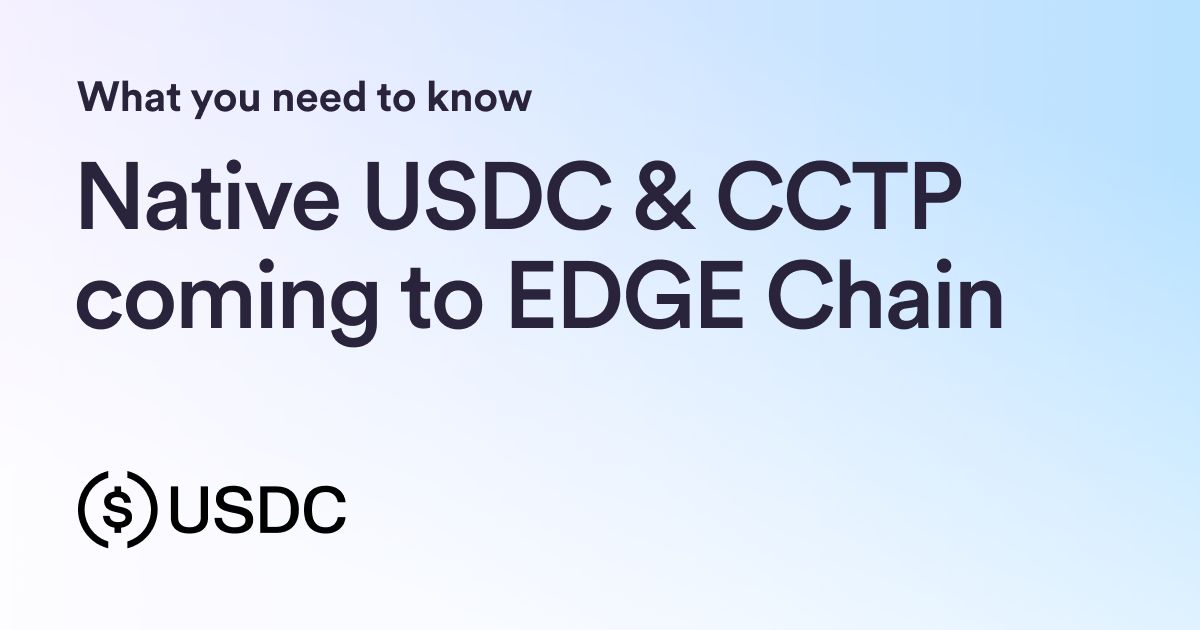The first federal stablecoin and payments law ushers in a new chapter for US competitiveness, consumer protection, and global payments innovation. Learn more.

The passage of the GENIUS Act marks a watershed moment in US financial history — the first federal law for payment stablecoins and an extraordinary example of bipartisan legislation. To unpack the law’s impact, Circle hosted an Executive Insights session, The GENIUS Act Era Begins: What It Means for Institutions and Innovation, featuring:
- Dante Disparte | Chief Strategy Officer and Head of Global Policy & Operations, Circle
- Corey Then | VP & Deputy General Counsel of Global Policy, Circle
- Andrew Gallucci | Senior Director of Regulatory Strategy, Circle
Their discussion explored what the Act means for market participants, the global regulatory landscape, and the future of USDC.
A bipartisan milestone for responsible innovation
The GENIUS Act is the first pro-innovation, technology-neutral federal financial law in decades. It creates a clear regulatory framework for payment stablecoins, defining reserve requirements, issuer obligations, and risk controls. “It is the most significant US law for innovation since the 1990s,” noted Dante Disparte. “[The GENIUS Act] unlocks not just a wave of economic activity, but a planetary opportunity to do so at scale.”
More than 100 House Democrats joined House Republicans to pass the bill in a profound display of bipartisan cooperation. The Act also enjoyed strong bipartisan support in the Senate.
Enshrining trust, transparency, and consumer protection into law
For Circle, the GENIUS Act is more than regulatory clarity, it’s validation. “The GENIUS Act enshrines Circle’s way of doing business into law,” said Disparte, noting that Circle’s long-standing practices around full-reserve backing, independent audits, and monthly disclosures are now legal requirements for all permitted issuers.
USDC, specifically, was built on many of the trust and transparency standards that the GENIUS Act now codifies, including strict one-to-one reserve mandates in high-quality, liquid assets; monthly public reserve reporting; and bankruptcy protection for token holders.
Unlocking global interoperability and solidifying the US dollar’s global position
Beyond the US, the GENIUS Act positions America to play a leading role in shaping global standards. By aligning closely with the EU’s Markets in Crypto-Assets (MiCA) framework and emerging regimes in the UK, Asia, and the Middle East, the Act strengthens global regulatory harmonization.
And as the world’s reserve currency, the GENIUS Act strengthens the US dollar’s position by ensuring dollar-denominated stablecoins meet the highest prudential standards — making them safer, more transparent, and more interoperable across borders. Disparte framed it as a matter of economic and geopolitical strategy:
Institutional adoption and the future of payments
For institutions, the message is clear: regulatory clarity removes barriers to adoption. The GENIUS Act opens new opportunities in cross-border payments, capital markets, and embedded financial services. “If you speed up the velocity of money,” said Corey Then, “the sky is the limit for what you can do with USDC.”
Perhaps most importantly, the GENIUS Act cements blockchain-based infrastructure as a permanent, regulated part of the US financial system. It affirms an open-market rather than government-led approach, preserving competition and innovation in the private sector.
And by extending US dollar access to anyone with an internet-connected device, Then believes the law has the potential to drive global financial inclusion.
The GENIUS Act is more than a set of rules — it’s a signal to markets, innovators, and institutions that the US is ready to lead in the digital finance era. For stablecoins, it’s the long-awaited framework that can turn early promise into mainstream adoption.
Watch the full Executive Insights replay
Visit our GENIUS Act Resource Center for more information on what this new legislation means for your business.




